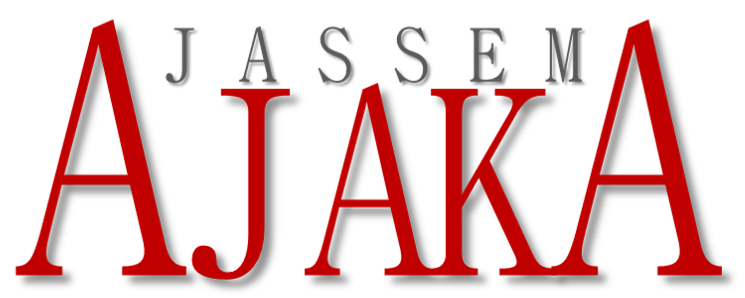jassemajaka@gmail.com
الإقتصاد في قلب العاصفة… كيف يحمي القطاع المصرفي نفسه؟
[multilanguage_switcher]
موقع لبنان 24 | نور الدين أيوب
يمر لبنان بمنخفض اقتصادي شديد القوة، الوضع ليس وليد الساعة كما يصفه أهل الحكم أنفسهم، بل نتيجة تراكمات وسياسات ساهمت، وعلى مدى أعوام، في ضرب الإقتصاد، وقد عزز ذلك، الوضع السياسي والأمني الهش الذي أبعد المستثمرين وسهّل نهب المال العام في مؤسسات الدولة، واستنزف جيوب الناس.
في ظل هذه الأوضاع الإقتصادية الدقيقة، وعلى رغم التأكيدات الرسمية بابتعاد شبح الإفلاس الذي خيّم مؤخراً على لبنان، تصب الحكومة جهدها لإقرار موازنة 2020 والتي من المفترض أن تقدم ما عجزت موازنة 2019 عن تقديمه، ليس فقط كرمى للأوضاع المعيشية المتردية، بل إرضاءً للجهات المموّلة في مؤتمر “سيدر”، أملاً في الحصول على تلك الأموال التي تعدت قيمتها الـ11 مليار دولار.
شائعات تستهدف القطاع المصرفي؟
ما بعد قرار وزارة الخزانة الأميركية بفرض عقوبات على مصرفي “اللبناني الكندي” و”جمال ترست بنك” على اعتبار أن للمصرفين “علاقة بتمويل” أفراد في “حزب الله”، ليس كما قبله، فقد كثرت الشائعات التي تستهدف القطاع المصرفي مؤخراً، وكان آخرها “إمكانية استهداف السلطات الأميركية 4 مصارف لبنانية بعقوبات جديدة خلال الأيام المقبلة”، مما اضطر رئيس جميعة المصارف سليم صفير إلى التأكيد على أن كل المعلومات المتداولة عن إجراءات أميركية تصعيدية ستطال مصارف لبنانية هي أخبار كاذبة، مشيراً إلى أن هذه المعلومات غير صحيحة ولا تمتّ إلى الحقيقة بصلة”.
تصريح صفير أكده الخبير الإقتصادي البرفسور جاسم عجاقة لـ”لبنان24″، واضعاً خبر استهداف المصارف في سياق الشائعات التي تكثر في هذا الوقت الإستثنائي، والتي يروج لها البعض وقد يكون من وراءها غايات سياسية معينة، مبدياً عدم تخوفه على مصير القطاع المصرفي مع اشارته إلى تأكيدات أميركية، امس، لجمعية المصارف بأن لا رغبة أميركية باستهداف القطاع.
لا تغطية للمصارف المخالفة، يؤكد الخبير الإقتصادي، مشيراً إلى أنه لا يمكن لأحد أن يحمي أي مصرف قد يخالف القوانين الدولية، وعلى الرغم من فرض الخزانة الأميركية عقوبات على “اللبناني الكندي” و”جمال ترست بنك” إلّا ان ذلك لم يؤثر على القطاع ولا على الودائع، بل على العكس ما زال لبنان يستقبل المزيد من الودائع وهذا يعني أن الثقة بالنظام المصرفي قوية، و”إذا افترضنا سيناريو فرض عقوبات على مصارف أخرى فإن ذلك أكبر برهان على أن أي خطأ سيتم التعامل معه وإزالته كي لا يؤثر مطلقاً على النظام المصرفي والودائع”.
إذا هكذا يحمي القطاع المصرفي نفسه حتى الآن، ولكن ومن جهة أخرى فإن “الوضع السياسي الحساس جداً والصراع الأميركي – الإيراني المحتدم، قد يؤثر على لبنان في أي لحظة على اعتبار أن البلد غير معزول عن هذا الصراع”، بحسب توصيف عجاقة، مضيفاً أنه “إذا افترضنا أيضاً فرض عقوبات على لبنان عندها لا شك سيتأثر الجميع”.
الخبير الإقتصادي علّق على إعلان وكالة “فيتش” للتصنيف الائتماني في بيان لها خفض تصنيف “بنك بيبلوس” إلى “CCC” من “B-” وتصنيف الجدوى (VR) إلى “ccc” من “b-“وذلك بسبب انكشافه على سندات الخزينة اللبناني، بحسب توصيف الوكالة، قائلاً: “في كل دولة لا يمكن للمصارف أن تأخذ علامة أعلى من علامة الدولة، وإذا هبطت علامة الدولة لا شك بهبوط باقي العلامات” وفق تعبيره.
ولأن التصنيف هو علامة لمجوعة عوامل ومؤشرات إقتصادية، يؤكد عجاقة أن “تخفيض تصنيف لبنان ليس خبراً عابراً ولا أثر له، بل تأثيره سلبي وينذر المستثمرين بعدم الإقبال، والمستثمر يعتمد بقوة هذا التصنيف ليبني على اساسه مشاريعه، مما يؤثر سلباً على الإقتصاد اللبناني ويزيد كلفة تمويله”.
أمّا بشأن الإصلاحات الإقتصادية، فيسأل عجاقة: “هل نجحت التجارب الماضية مع المؤتمرات السابقة سعياً للإصلاح؟ الجواب بالتأكيد سلبي، مؤكداً أنه “بغض النظر عن مدى صدق النوايا، إلّا أن هذه الفرصة هي الأخيرة أمام لبنان، إمّا الإصلاح الحقيقي وإنقاذ المالية العامة، وإمّا الهاوية”.
بعض الإجراءات التي اعتمدها وزير المال علي حسن خليل في موازنة 2019 “تذهب بالإتجاه الصحيح، ولكن كل هذه الإجراءات غير كافية بالمطلق ولا تستطيع مواجهة التحديات التي نواجهها الآن، لكن إعطاء الضوء الأخضر لصرف أموال “سيدر”، يتعلق أكثر بالرغبة السياسية، وهي متوافرة وقد أكدها مسؤولون غربييون، والتحدي يبقى الإلتزام بالإصلاح، والسؤال هو: هل سيكون العجز مطابقا لما وعدوا به في الموازنة؟


